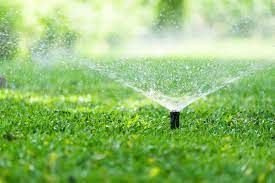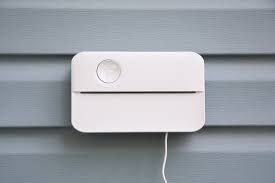info@dmdesignsinc.us Dallas-Fort Worth LIC 6672, LIC 27412
Should You Upgrade To A Smart Timer?
Introduction
In the quest for more efficient and convenient home irrigation systems, upgrading your sprinkler timer to a smart timer is becoming increasingly popular. This move not only represents a step forward in leveraging technology for home maintenance but also contributes to significant water conservation and cost savings. This article explores the advantages of smart timers over traditional models and outlines why making the switch is a beneficial decision for homeowners.
Understanding Sprinkler Timers
Traditional sprinkler timers have been the backbone of automatic irrigation systems, allowing homeowners to set fixed watering schedules. However, these systems often lack the ability to adjust to changing weather conditions or the specific needs of different plant types, leading to over or under-watering.
What is a Smart Timer?
A smart timer incorporates advanced technology to control your sprinkler system more efficiently. Unlike traditional timers, smart timers can adjust watering based on real-time weather data, soil moisture levels, and even plant types, ensuring that your garden receives the right amount of water at the right time.
Benefits of Upgrading to a Smart Timer
Water Efficiency: By adjusting watering schedules based on actual needs, smart timers can drastically reduce water usage, benefiting both the environment and your wallet.
Cost Savings: Lower water usage translates into significant savings on your water bill, with the added advantage of maintaining a healthier landscape.
Convenience and Flexibility: Smart timers can be controlled remotely via smartphone apps, allowing you to adjust settings on the go and receive notifications about your system's status.
Environmental Impact: Efficient water use helps conserve a precious resource, contributing to a more sustainable and environmentally friendly gardening practice.
How Smart Timers Work
Smart timers utilize Wi-Fi or other wireless technologies to connect to local weather stations and smart home systems. This connectivity enables them to automate watering schedules based on anticipated weather changes, such as rain, reducing unnecessary watering.
Installation and Setup
Upgrading to a smart timer is generally straightforward, with most units designed for easy DIY installation. This section would guide you through selecting a compatible timer for your system and the basic steps involved in setting it up.
Cost Analysis: Traditional vs. Smart Timers
An analysis of the initial costs versus the long-term benefits and savings of smart timers compared to traditional models, illustrating the economic advantages of upgrading.
Real-World Success Stories
Case studies highlighting the positive impact of smart timer upgrades on both residential and commercial properties, showcasing real-life examples of efficiency gains and cost savings.
Choosing the Right Smart Timer for Your Needs
Advice on the key features to look for when selecting a smart timer, including compatibility with your existing irrigation system, app usability, and weather responsiveness.
The Role of Technology in Water Conservation
Discussion on how smart timers fit into the broader context of sustainable practices and technological advancements in irrigation, including potential future trends.
Common Concerns and Solutions
Addressing typical questions and concerns about smart timers, such as Wi-Fi connectivity issues, compliance with local water use regulations, and how to adapt your gardening practices to make the most of smart technology.
Maintenance Tips for Smart Timers
Guidelines for the regular maintenance of your smart timer, ensuring its longevity and optimal performance throughout its lifespan.
FAQs About Upgrading to a Smart Timer
A section dedicated to answering frequently asked questions regarding the upgrade process, functionality, and troubleshooting of smart timers.
Conclusion
Upgrading your sprinkler timer to a smart timer offers a host of benefits, from enhanced water efficiency and cost savings to greater convenience and a positive environmental impact. By embracing this technology, homeowners can take a significant step towards more sustainable and intelligent home irrigation systems.
Recent Posts

-
Irrigation Services
Button
-
Commercial Services
Button
-
Contact Us
Button
Contact Us
Email:
info@dmdesigns.us
Phone:
(817) 372-4427
Business Hours
- Mon - Fri
- -
- Sat - Sun
- Closed
States Serviced
Texas
Louisiana
Colorado
Arkansas




